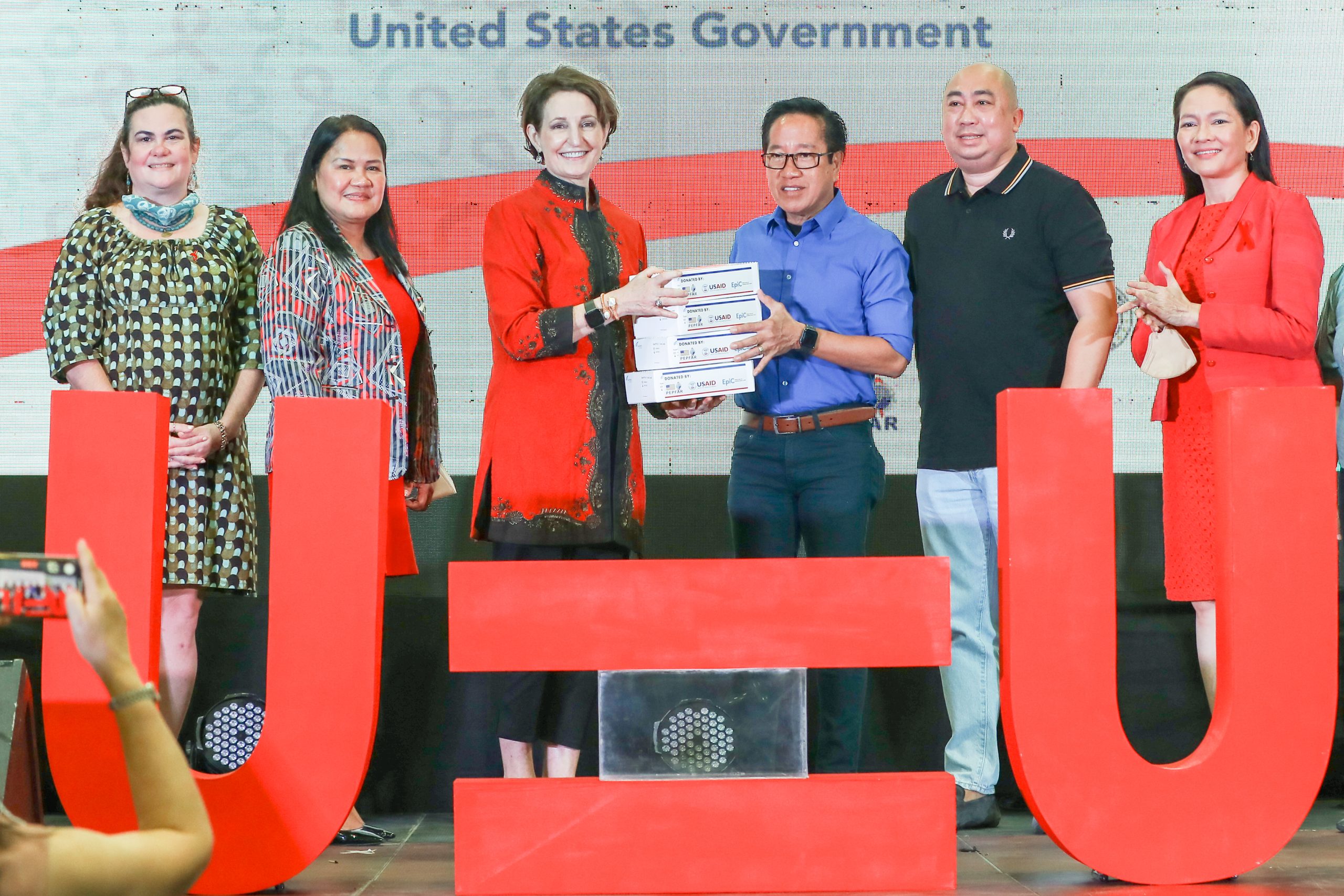Headline
DOH receives US-donated testing cartridges for HIV detection

US Ambassador to the Philippines MaryKay Carlson (3rd from left) turns over the donation of 86,000 human immunodeficiency virus (HIV) viral load cartridges to Department of Health officials in observance of World AIDS Day in Manila on Thursday (Dec. 1, 2022). An HIV viral load is a blood test that measures the amount of HIV in a blood sample. (PNA photo by Yancy Lim)
MANILA – The Department of Health (DOH) on Thursday received PHP85 million worth of HIV viral load testing cartridges from the US government in celebration of the Worlds AIDS Day.
“These laboratory tests [cartridges] are further proof that the US government is committed to working alongside the Department of Health, the community of Filipinos living with HIV, and local governments like Manila City to ensure that people living with HIV in the country have equitable access to a viral load test,” US Ambassador to the Philippines MaryKay Carlson said during a turnover ceremony.
An HIV viral load test is a type of HIV test blood test that measures the amount of HIV genetic material in a blood sample.
Undersecretary Maria Rosario Vergeire, DOH officer-in-charge, said the donation of more than 86,000 viral load cartridges would be pivotal to the country’s HIV treatment program.
“The DOH strongly calls for equal access to services for people living with HIV and full protection of human rights as it leads in observance of the release this year seeing fooling ourselves to the test, achieving equity to end HIV aims to contribute to the global goal of ending as a public health by 2030,” she added.
Since December 2020, the US government has provided more than PHP1 billion to the Philippine government through the President’s Emergency Plan for AIDS Relief to support HIV prevention, case finding, and treatment interventions.
The support included a donation of more than 81,000 bottles of pre-exposure prophylaxis, an HIV-preventive drug that is being distributed by the DOH in more than 50 facilities across Metro Manila, Central Luzon, and Calabarzon.
This PHP31.3 million worth donation was turned over to the Philippine government in June 2021.
Equal access to services
DOH Undersecretary Maria Francia Laxamana urged everyone for the bold and urgent action to promote the right space, community-led and evidence-based HIV services, including prevention, sex, one and reproductive health services, HIV testing, treatment, care, and support.
“During the last two years of Covid-19, the global HIV response has been faltering resources have been shrinking and inequalities have been widening,” she said in a media briefing Thursday.
“In the last four decades of HIV response, inequality still persists for the most basic services like testing treatment, the use of condoms and other protections, including new technologies.”
She added that holistic actions must be done by the stakeholders, the community, and the civil society organizations for the realization of the zero new infection, zero discrimination, and equality to address the epidemiology social economic, cultural, and legal determinants of HIV.



























